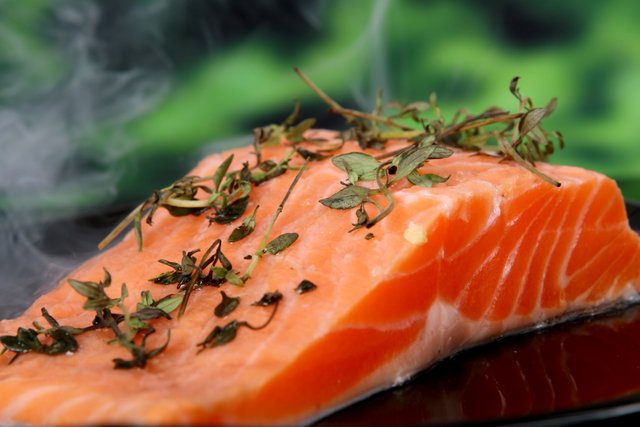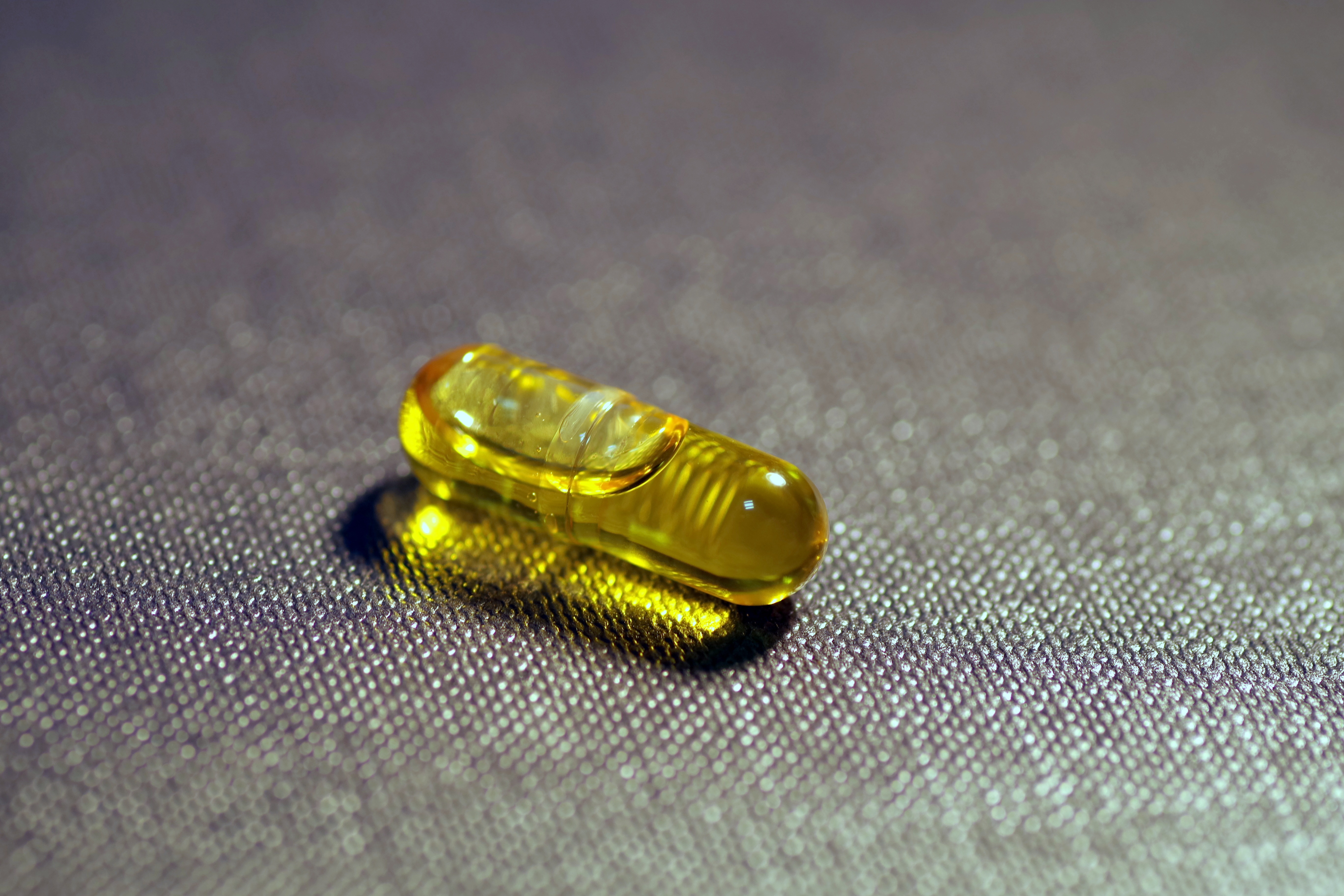In the post before this one, I've discussed the importance of dietary fats. When writing about unsaturated fats, I've mentioned omega-3 essential fatty acids. I've mentioned that they are essential, meaning, that they are absolutely necessary, and I've also mentioned that omega-3 and omega-6 fatty acids are two of the most important nutrients that make up our brain tissues. So, let's get into them.
What Omega-3 Essential Fatty Acids Are?

Omega-3's are polyunsaturated, essential fatty acids that have third carbon atom at the end of the carbon chain. Omega-3's found in fish consist of mostly eicosapentaenoic acid (EPA) and docosahexaenoic acid (DHA). Omega-3's found in plant foods mostly consist of alpha-linolenic acid (ALA).
What Do Omega-3's Do?
There are a number of functions that these great fatty acids do.
They can lower the levels of triglycerides, fats that are found in blood and that seem to increase the risk of heart disease and the likelihood of having a stroke. And because omega-3's can lower your triglyceride levels, they can decrease the risks of developing any sort of heart disease.
They help treat joint inflammation, pain and stiffness. They also seem to increase the effectiveness of anti-inflammatory pharmaceuticals.
Because Omega-3's help with inflammation, they seem to help treat asthma. Although, further studies need to be made in order to confirm that.
It has neurological benefits, too. It seems to help treat Alzheimer's and disease and dementia AND it slows down the memory loss associated with aging.
Infant development. These fatty acids also help when it comes to the visual and neurological development of infants. That's why pregnant mothers are usually advised to consume a lot of them.
There are a number of studies that seem to suggest that omega-3's help with cognitive functions - they help you to be more focused, remember and think better.
And last but not the least, they help treat depression. Cultures that consume a lot of omega-3's compared to those that consume very little of it, tend to have a lot less depressed people. Also they help boost the effectiveness of anti-depressants.
As you can see, they are very beneficial. Both omega-3's and omega-6's are very beneficial in their own ways. And that brings me to a very important point. The amounts of omega-3's and omega-6's that you consume is very important, but what is also important is the ratio between these fatty acids. The perfect ratio is 1:1. Unfortunately, nowadays most people's diets consist of large amounts of omega 6's and low amounts of omega-3's. That is bad for your health. Of course, it's almost practically impossible to have the perfect ratio, but the closer to it the better, so trying to consume more omega-3's is very important.
Foods That Contain Omega-3's 
What are the foods that contain omega-3's? The most simple answer is fish. There is no other food that contains the amounts and the quality of omega-3's like fish. Some of the fishes that contain large amounts of these fatty acids are:
Salmon (wild salmon almost always has more omega-3's than the farmed ones)
Sardines
Sturgeon
Lake trout
Tuna
Anchovies
Bluefish
Herring
Mackerel
Flounder
Swordfish
Shark
Whitefish
Bass
Haddock
And there are thousands more, that are not really worth mentioning.
Possible Danger Of Getting Your Omega-3's From The Fish
Fish are the main source of omega-3's, but there is also a big problem, when it comes to eating fish. Mercury pollution. Over the years many oceans and seas have become polluted with mercury, which is a heavy metal that is very harmful to human body. And because fishes live in these areas, they become exposed to it, and started to have it in their bodies. And the amounts of mercury found in fishes have increased along with the increase of mercury's pollution, so experts are recommending to eat and and less fish. Not to say that you shouldn't eat any fish. Some fishes come from clean sources and are not contaminated with mercury, so they are safe to eat. Others, unfortunately, are. But eating them, in moderate amounts shouldn't do much harm to you. Just not too much. Another thing is that farm raised fish tends to be more contaminated than the wild fish, so aim for the wild fish.
Plant Sources Of Omega-3's
You have to also keep in mind that there are plant sources of omega-3's that don't contain mercury. Some of these plants are:
Walnuts
Flaxseed oil
Canola oil
Soybean oil
These plants contain the most plant based omega-3's. The problem with the plant based omega-3's is that they contain mostly ALA (alpha-linolenic acid) and not much, or sometimes none, of EPA (eicosapentaenoic acid) and DHA (docosahexaenoic acid). EPA and DHA tend to aid your body much more than ALA, so you might very well miss a lot if you limit yourself to only plant based food, for getting your omega-3's. That is also something you have to keep in mind.
Supplementation

So, should you supplement with omega-3's? In many cases that would be a very good idea. Most people aren't going to eat fish or walnuts everyday, but they could easily take supplements everyday, because that's a lot easier. And the most famous omega-3 supplement ever is fish oil. Fish oil usually contains:
Omega-3's
Vitamin D
Vitamin A
Vitamin E
One of the things that some people don't like is the taste and the aftertaste they feel then taking fish oil. Fortunately, nowadays there are many alternative fish oils that have different tastes and that, quite frankly, taste good.
Plus, fish oil supplements are almost superior to the omega-3's that are found in plant based foods. Plus, they, in most cases, come from very clean sources of water and are not contaminated at all or a tiny bit. One of the reasons behind it is, because the regulations of fish oil supplements are usually much greater than the actual fish. So, by taking fish oil supplements you get very high quality, non-contaminated fish oil that is very easy to consume. There are differences between different fish oils, though, some are better, other are worse and it's important to find the high quality and relatively cheap ones that come from trusted companies.
So, if you are thinking about supplementing with fish oils, you can try getting these Optimum Nutrition's fish oil from Amazon.com, because of their price, quality and trustworthiness of the company.
Conclusion
So, to wrap this up, omega-3's are essential fatty acids that a lot of us are not getting enough of, their benefits extend all the way from physiological to psychological and they need to be taken seriously. They are in foods like fish, walnuts and flaxseed oil, for example, but due to these foods quality and contamination levels, and simply, because it's hard to consistently consume them, fish oil supplements are recommended. These supplements are convenient and very helpful, so if you are interested, you can by all means try them and see their effects for yourself.
hey loved this article, I think you might like my friends https://steemit.com/food/@whitedolphin/delicious-easy-urban-eatery-urban-plates-del-mar-highlands-san-diego-california-review
Downvoting a post can decrease pending rewards and make it less visible. Common reasons:
Submit